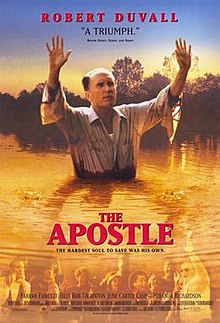
Tender Mercies is a 1983 American drama film directed by Bruce Beresford, featuring Robert Duvall as singer-songwriter Mac Sledge in a performance that won him an Academy Award. The Oscar-winning screenplay by Horton Foote focuses on Mac Sledge (Duvall), a former country music star whose career and relationship with his ex-wife and daughter were wrecked by alcoholism. Recovering from his affliction, Sledge seeks to turn his life around through his relationship with a young widow and her son in rural Texas. The supporting cast includes Tess Harper, Betty Buckley, Wilford Brimley, Ellen Barkin and Allan Hubbard.
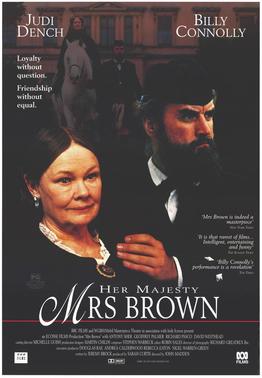
Mrs Brown is a 1997 British drama film starring Judi Dench, Billy Connolly, Geoffrey Palmer, Antony Sher, and Gerard Butler in his film debut. It was written by Jeremy Brock and directed by John Madden. The film was produced by the BBC and Ecosse Films with the intention of being shown on BBC One and on WGBH's Masterpiece Theatre. However, it was acquired by Miramax and released to unexpected success, going on to earn over $13 million worldwide.

Gong Li is a Chinese actress. Regarded as one of the best actresses in China today, she is known for her versatility and naturalistic performance. She starred in three of the four Chinese-language films that have been nominated for the Academy Award for Best International Feature Film.

Robert Selden Duvall is an American actor and filmmaker. With a career spanning seven decades, he is the recipient of an Academy Award, four Golden Globe Awards, a BAFTA Award, two Primetime Emmy Awards, and a Screen Actors Guild Award.

Marcello Vincenzo Domenico Mastroianni was an Italian film actor, regarded as one of his country's most iconic male performers of the 20th century. He played leading roles for many of Italy's top directors in a career spanning 147 films between 1939 and 1996, and garnered many international honours including two BAFTA Awards, two Best Actor awards at the Venice and Cannes film festivals, two Golden Globes, and three Academy Award nominations.

Farrah Leni Fawcett was an American actress. A four-time Primetime Emmy Award nominee and six-time Golden Globe Award nominee, Fawcett rose to international fame when she played a starring role in the first season of the television series Charlie's Angels.

Denis Villeneuve is a Canadian filmmaker. He has received seven Canadian Screen Awards as well as nominations for three Academy Awards, five BAFTA Awards, and two Golden Globe Awards. Villeneuve's films have grossed over $1.8 billion worldwide.
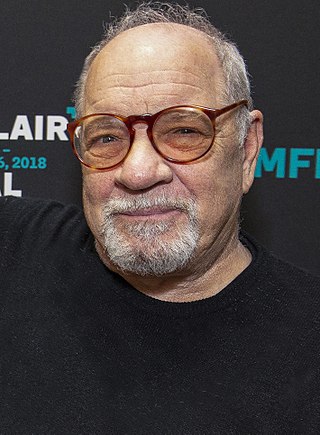
Paul Joseph Schrader is an American screenwriter, film director, and film critic. He first became widely known for writing the screenplay of Martin Scorsese's Taxi Driver (1976). He later continued his collaboration with Scorsese, writing or co-writing Raging Bull (1980), The Last Temptation of Christ (1988), and Bringing Out the Dead (1999). Schrader is more prolific as a director: his 22 films include Blue Collar (1978), Hardcore (1979), American Gigolo (1980), Mishima: A Life in Four Chapters (1985), Light Sleeper (1992), Affliction (1997), and First Reformed (2017), with the last of these earning him his first Academy Award nomination. Schrader's work frequently depicts "man in a room" stories which feature isolated, troubled men confronting an existential crisis.

Shelley Alexis Duvall is an American actress and producer widely known for her portrayal of distinctive, often eccentric characters. She is the recipient of several accolades, including a Cannes Film Festival Award and a Peabody Award and nominations for a British Academy Film Award and two Primetime Emmy Awards.

Hong Sang-soo is a South Korean film director and screenwriter. An acclaimed and prolific filmmaker, Hong is known for his slow-paced films about love affairs and everyday dilemmas in contemporary South Korea.
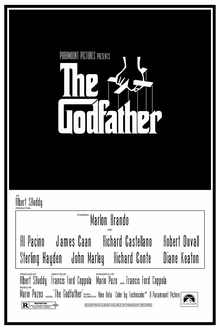
The Godfather is a 1972 American epic gangster film directed by Francis Ford Coppola, who co-wrote the screenplay with Mario Puzo, based on Puzo's best-selling 1969 novel of the same title. The film stars an ensemble cast including Marlon Brando, Al Pacino, James Caan, Richard Castellano, Robert Duvall, Sterling Hayden, John Marley, Richard Conte, and Diane Keaton. It is the first installment in The Godfather trilogy, chronicling the Corleone family under patriarch Vito Corleone (Brando) from 1945 to 1955. It focuses on the transformation of his youngest son, Michael Corleone (Pacino), from reluctant family outsider to ruthless mafia boss.
The 63rd New York Film Critics Circle Awards, honoring the best in film for 1997, were announced on 11 December 1997 and given on 4 January 1998.
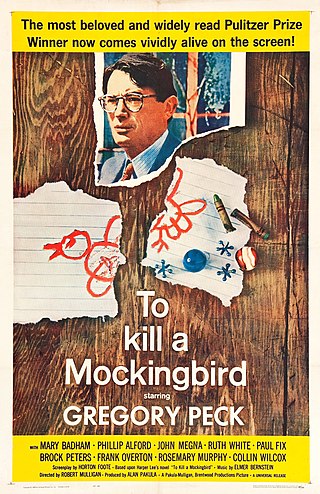
To Kill a Mockingbird is a 1962 American coming-of-age legal drama crime film directed by Robert Mulligan. The screenplay by Horton Foote is based on Harper Lee's 1960 Pulitzer Prize–winning novel of the same name. The film stars Gregory Peck as Atticus Finch and Mary Badham as Scout. It marked the film debut of Robert Duvall, William Windom, and Alice Ghostley.
The 10th Chicago Film Critics Association Awards, given on 1 March 1998, honored the finest achievements in 1997 filmmaking.
Irma Dolores Player Hall is an American actress who has appeared in films and television shows since the early 1970s. Hall often played matriarchal figures in films including A Family Thing, The Ladykillers and Soul Food, in which she portrayed Josephine "Big Mama Joe" Joseph, a role she reprised in the television series of the same name. Hall earned an NAACP Image Award nomination for portraying the character in the film version.
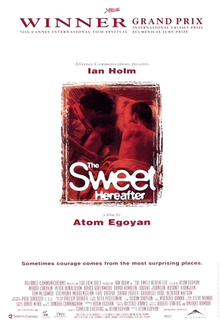
The Sweet Hereafter is a 1997 Canadian drama film written and directed by Atom Egoyan, adapted from the 1991 novel by Russell Banks. It tells the story of a school bus accident in a small town that kills 14 children. A class-action lawsuit ensues, proving divisive in the community and becoming tied with personal and family issues. It stars an ensemble cast featuring Ian Holm, Sarah Polley, Maury Chaykin, Bruce Greenwood, Tom McCamus, Gabrielle Rose, Arsinée Khanjian and Alberta Watson.
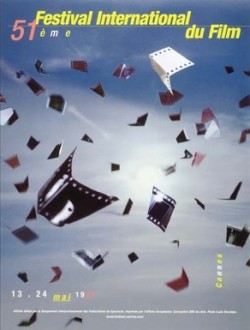
The 51st Cannes Film Festival was held from 13 to 24 May 1998. American director, producer, screenwriter, and film historian Martin Scorsese was the Jury President. The Palme d'Or went to the Greek film Mia aioniotita kai mia mera by Theo Angelopoulos.

The 31st Cannes Film Festival was held from 16 to 30 May 1978. The Palme d'Or went to The Tree of Wooden Clogs by Ermanno Olmi. This festival saw the introduction of a new non-competitive section, 'Un Certain Regard', which replaces 'Les Yeux Fertiles' (1975-1977), 'L'Air du temps' and 'Le Passé composé'.

Adam Douglas Driver is an American actor. Recognized for his collaborations with auteur filmmakers, he is the recipient of various accolades, including nominations for two Academy Awards, four Primetime Emmy Awards, and a Tony Award.
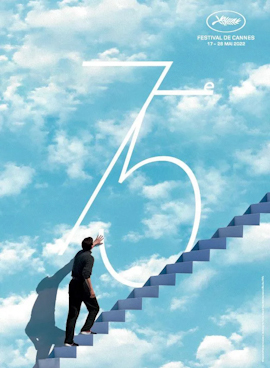
The 75th annual Cannes Film Festival is a film festival that took place from 17 to 28 May 2022. The festival featured a tribute to actor Tom Cruise, whose film Top Gun: Maverick premiered at the festival and where the actor was awarded an Honorary Palme d'Or award on short notice. The official poster for the festival was designed as a homage to The Truman Show (1998).
